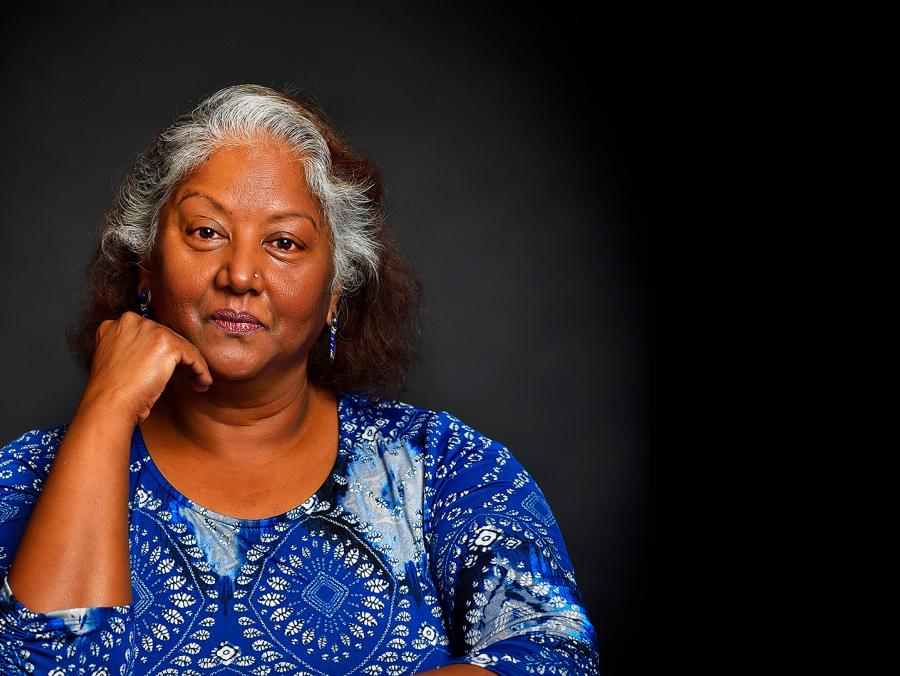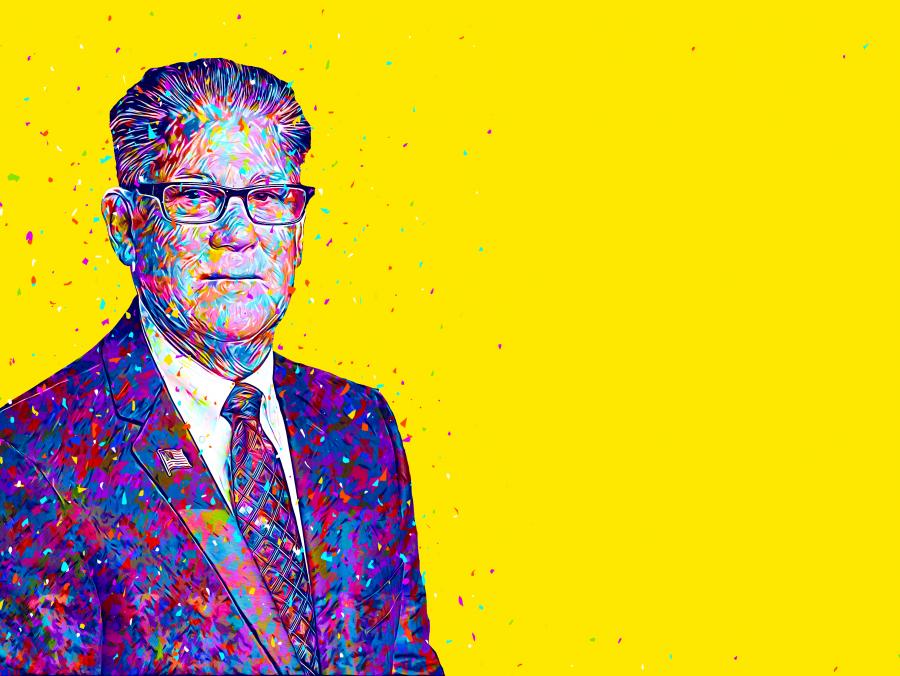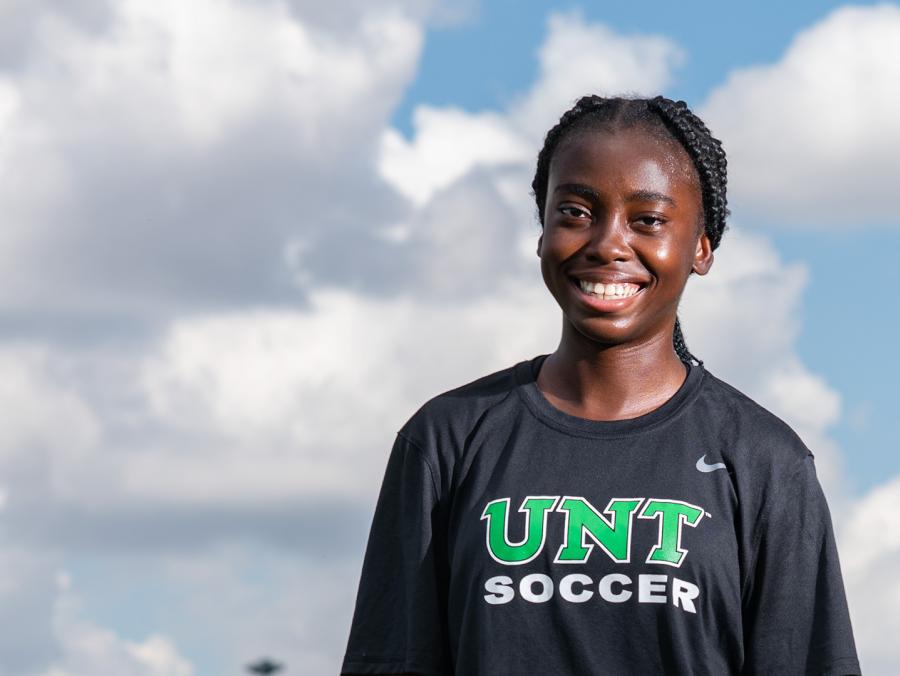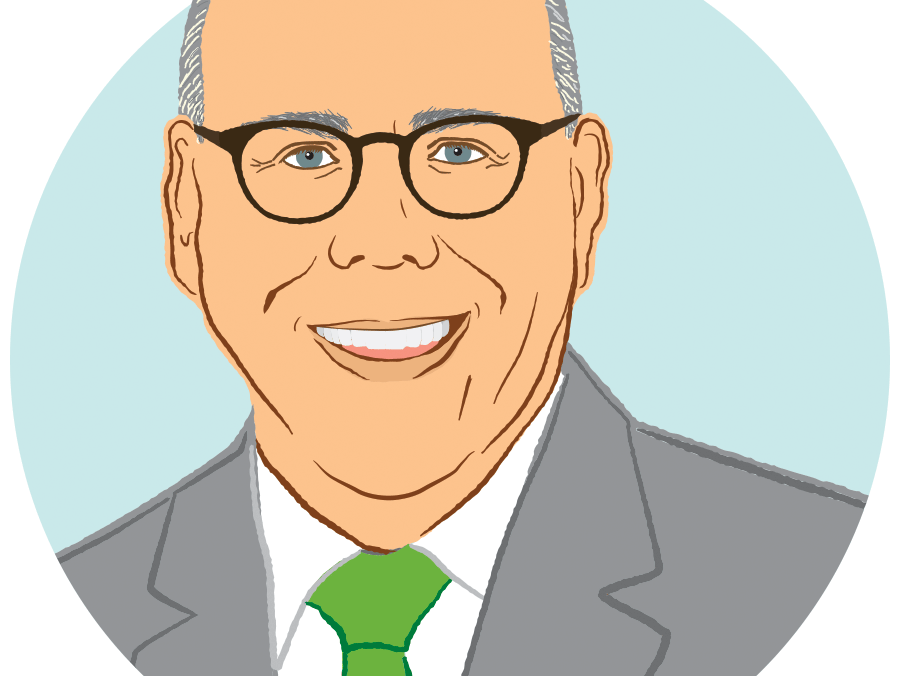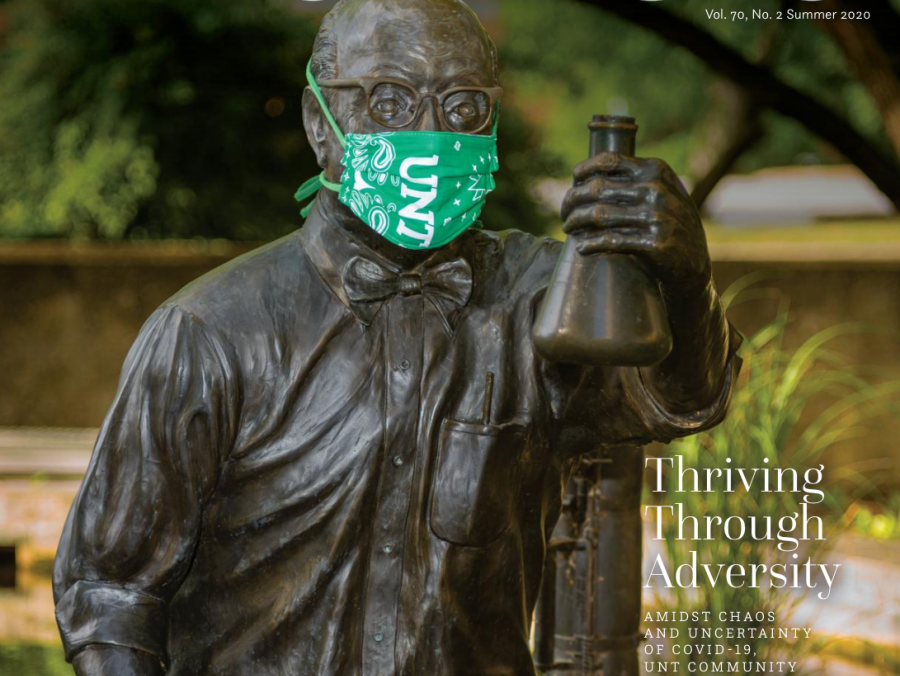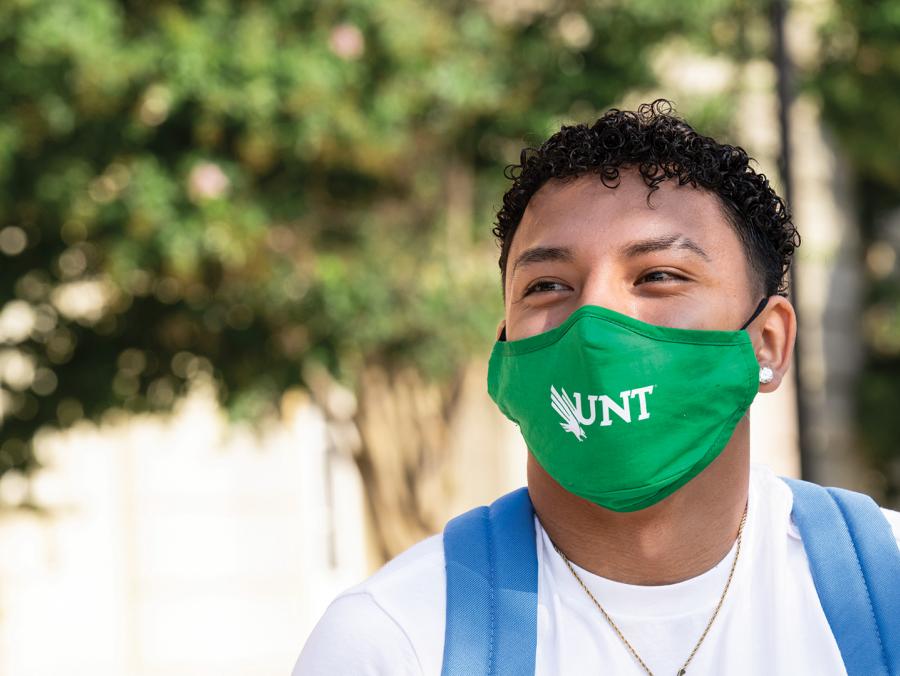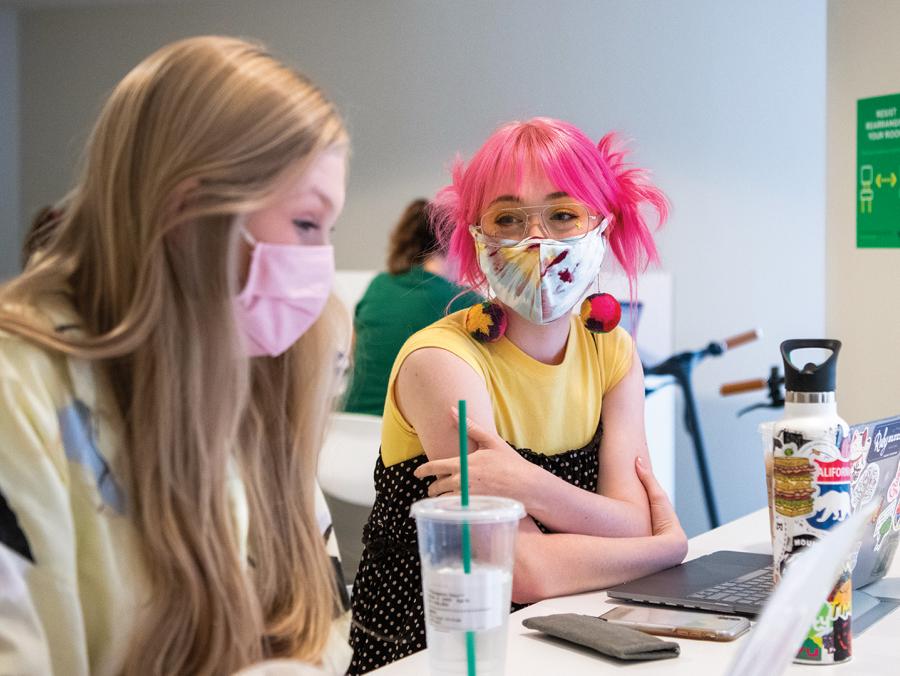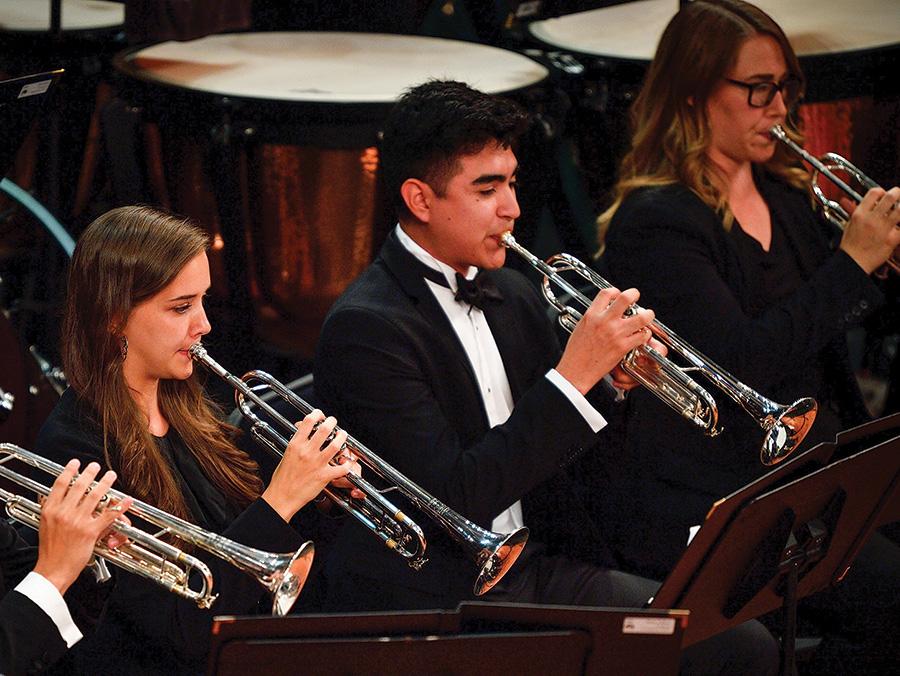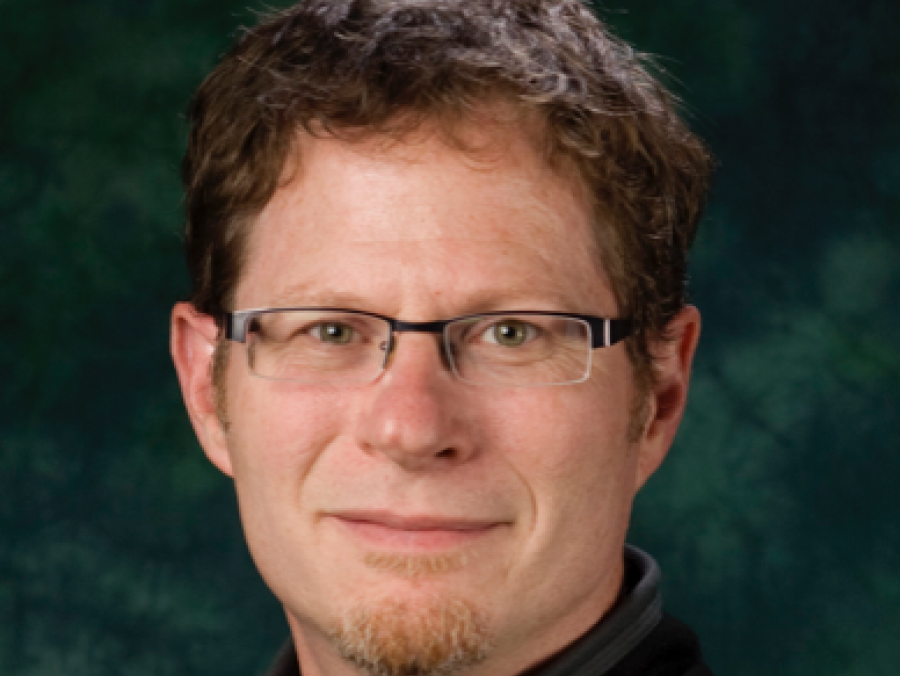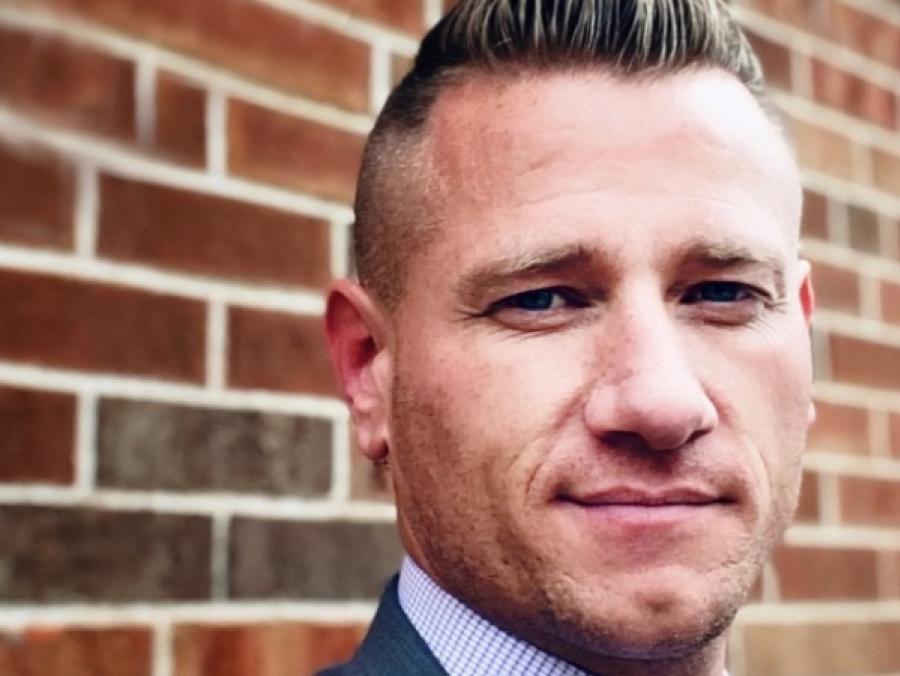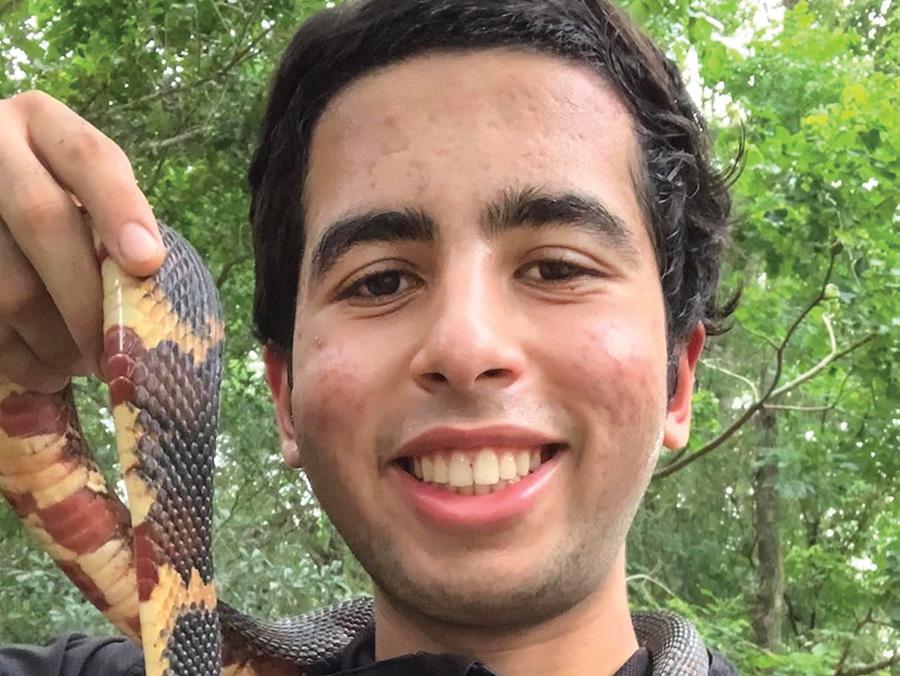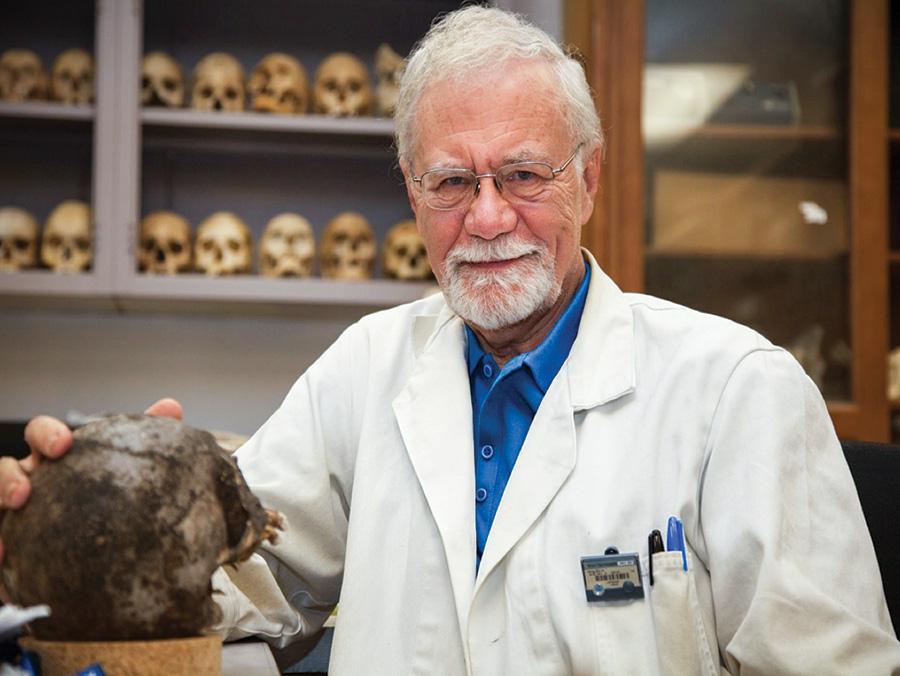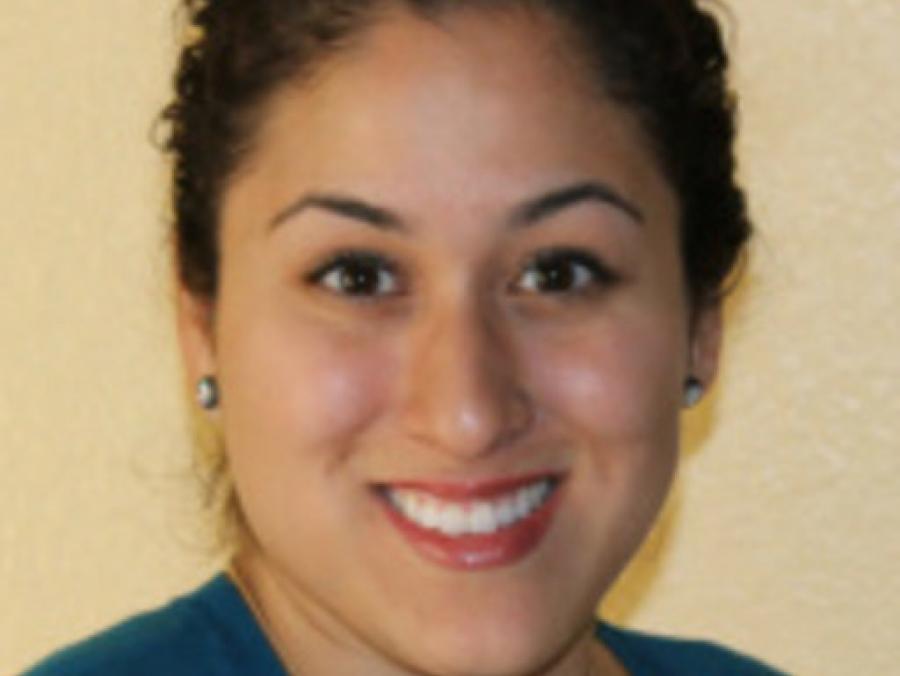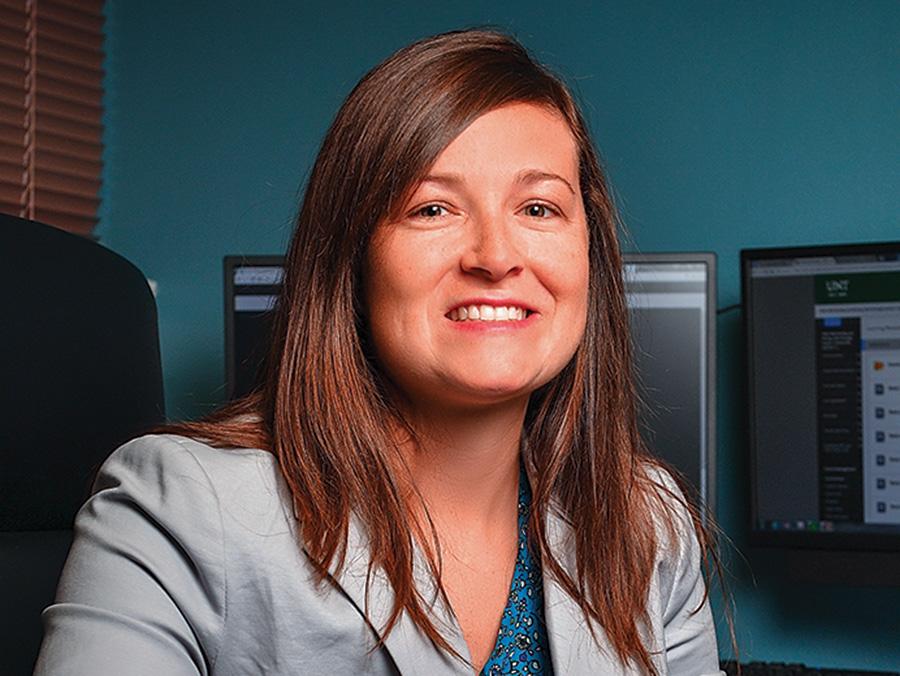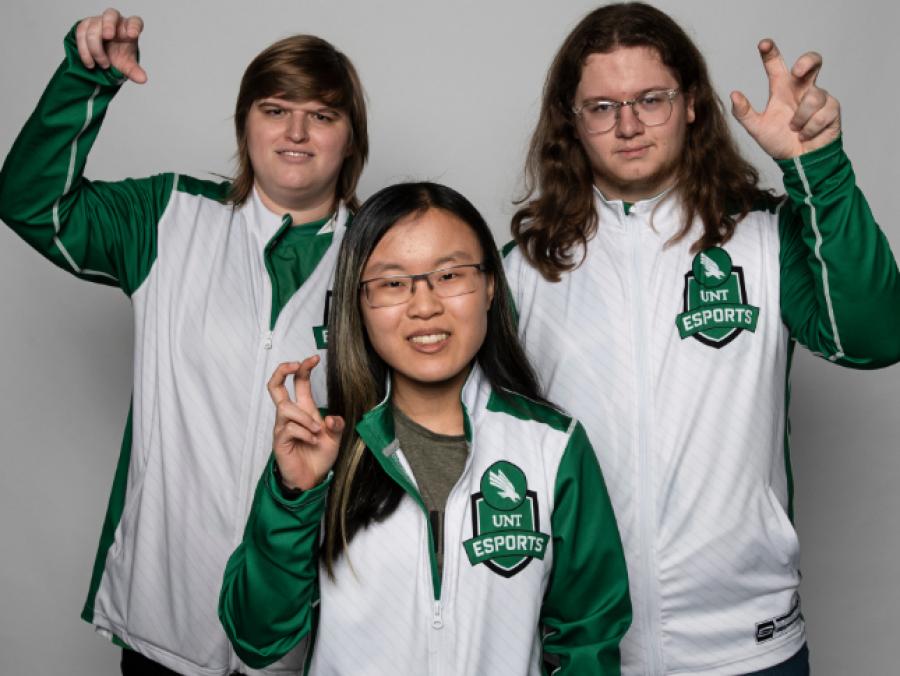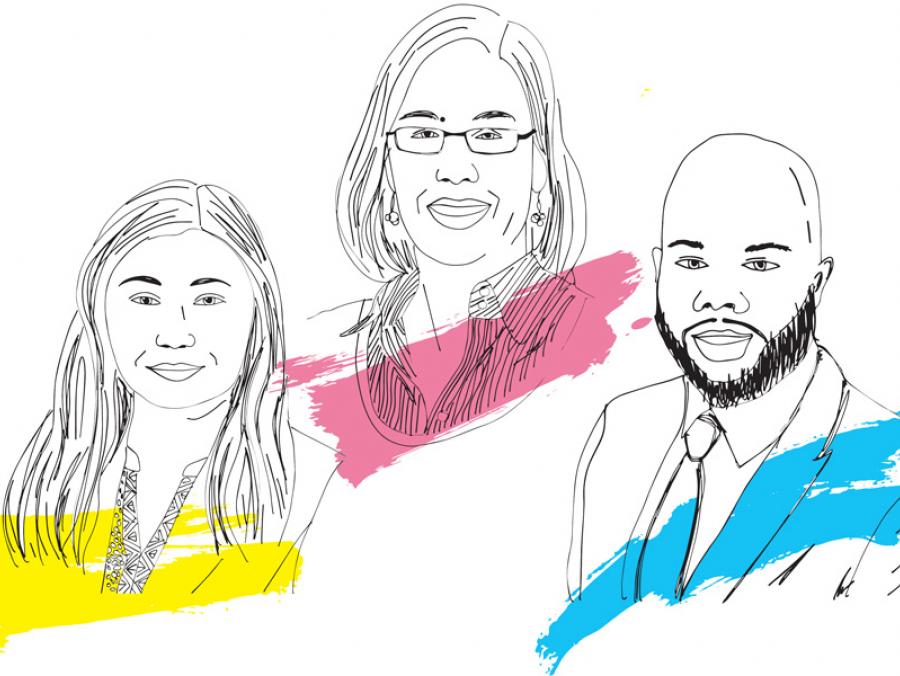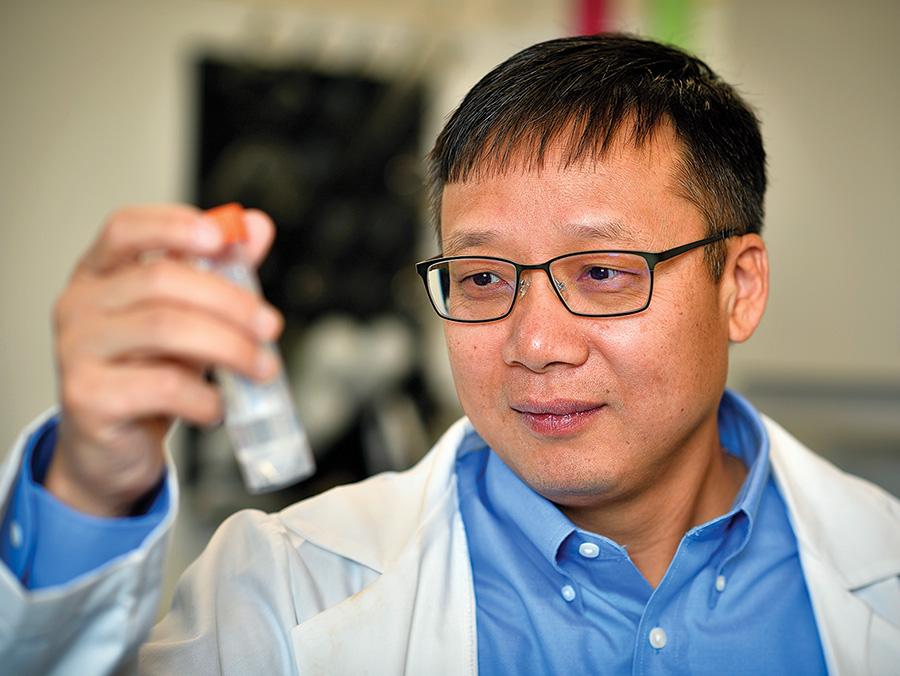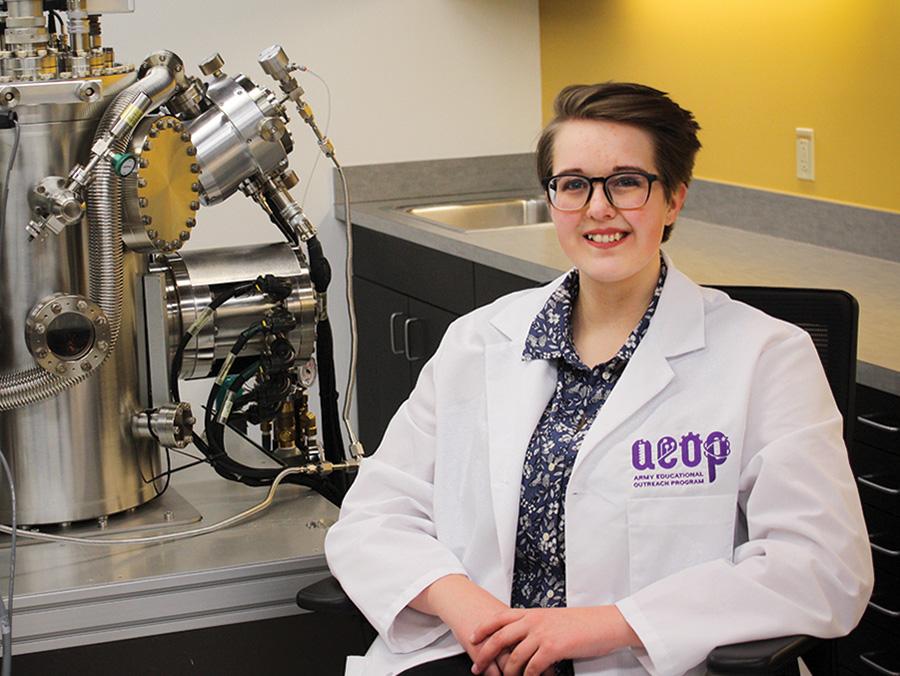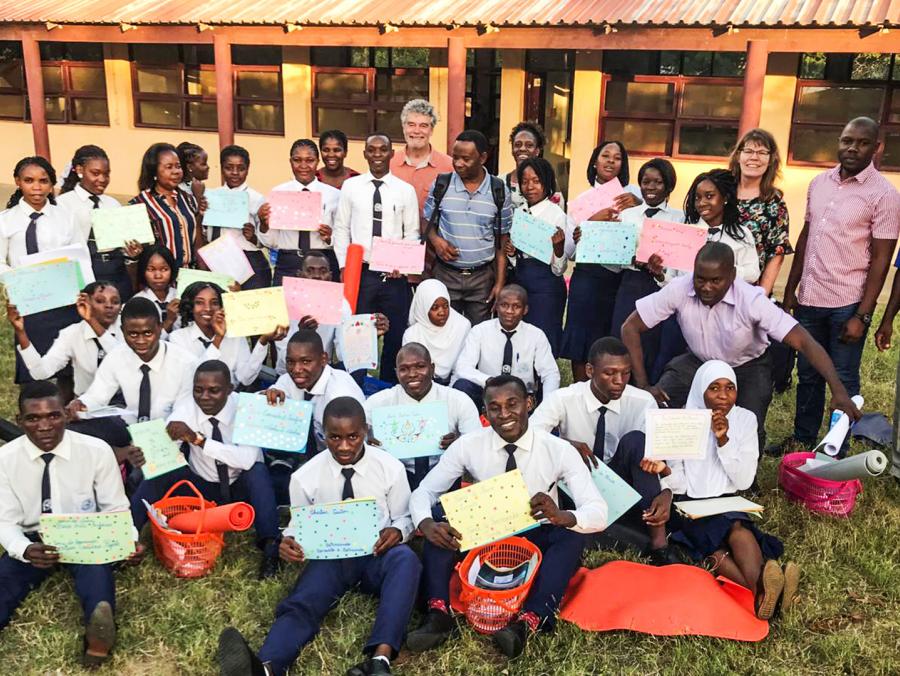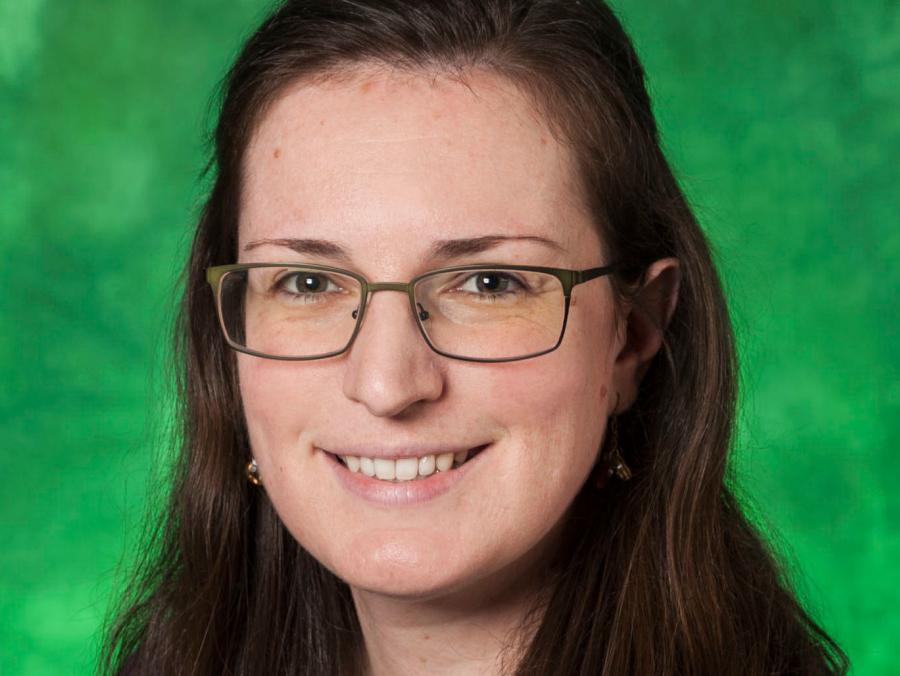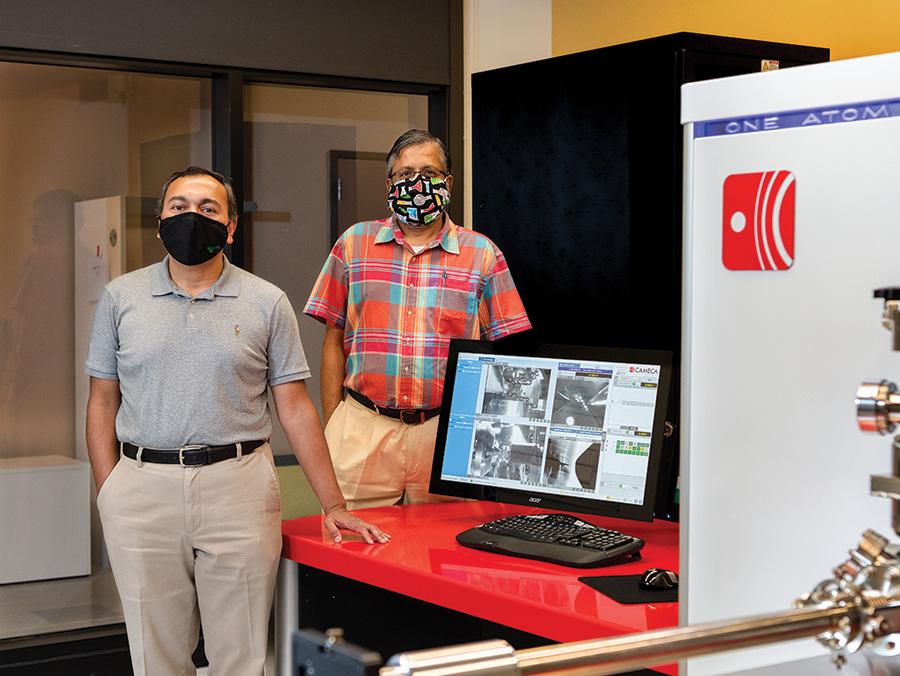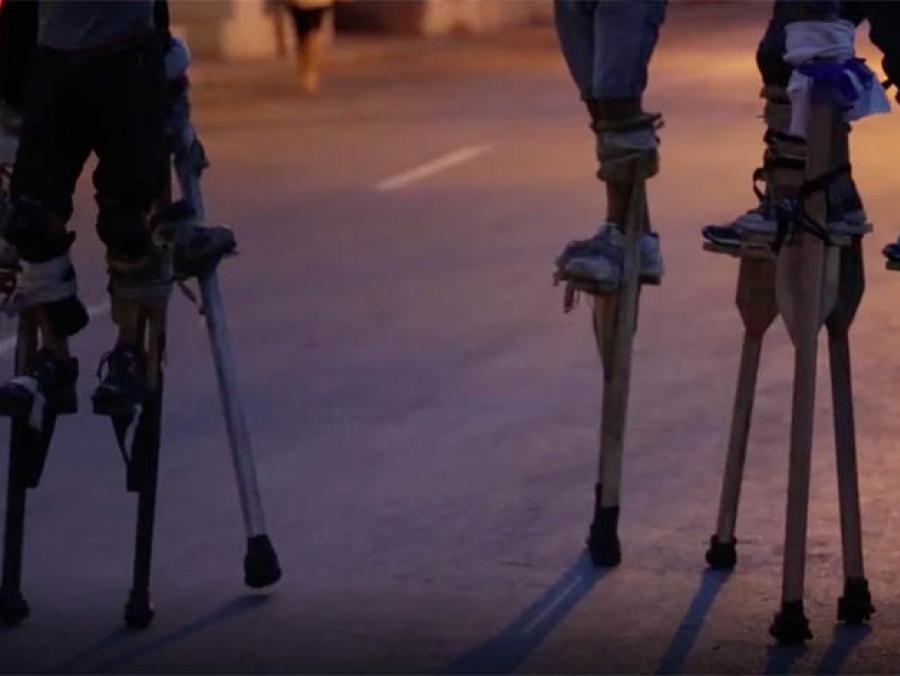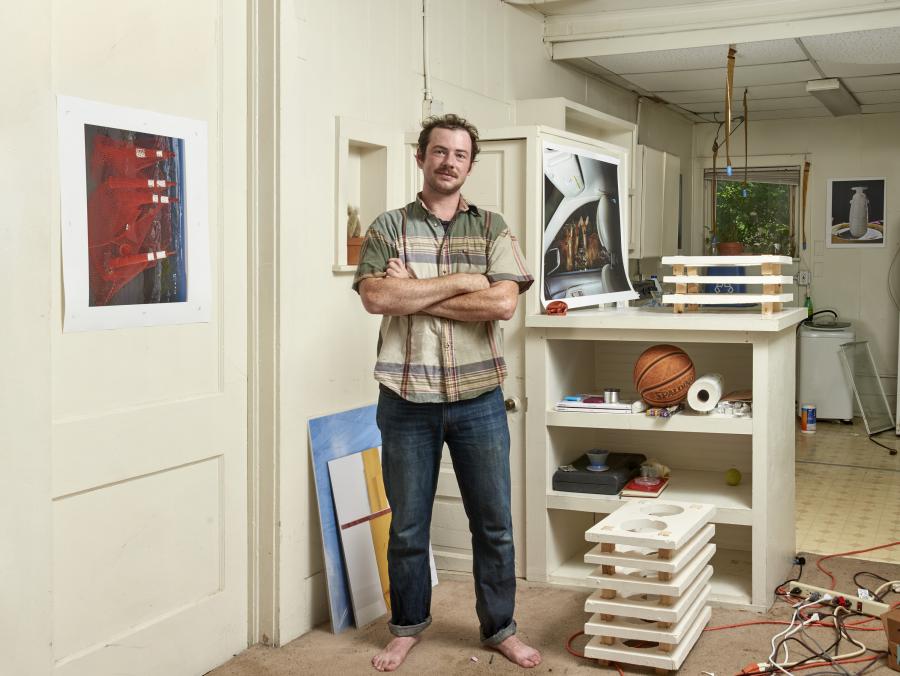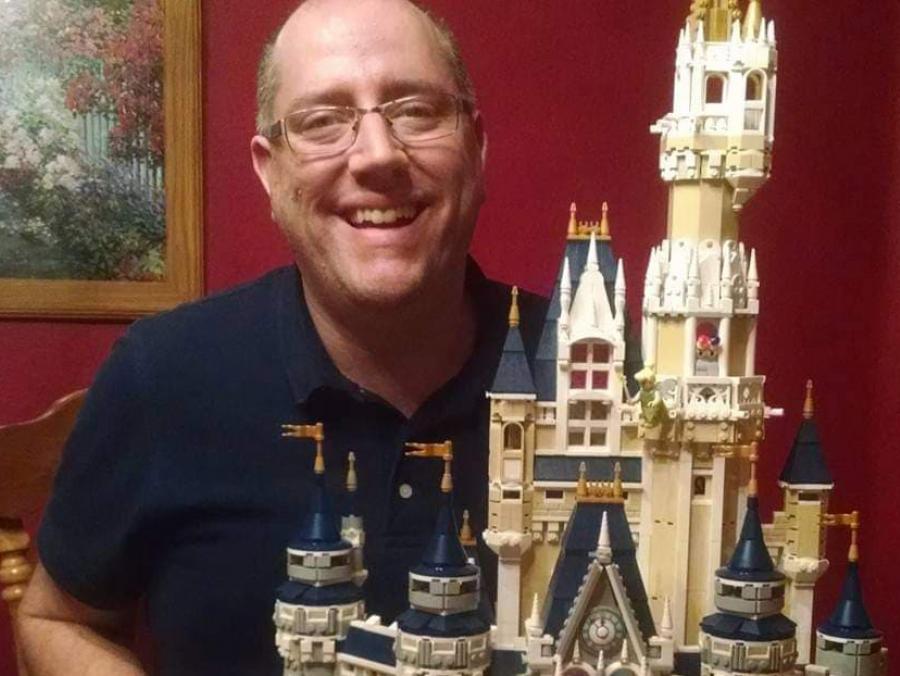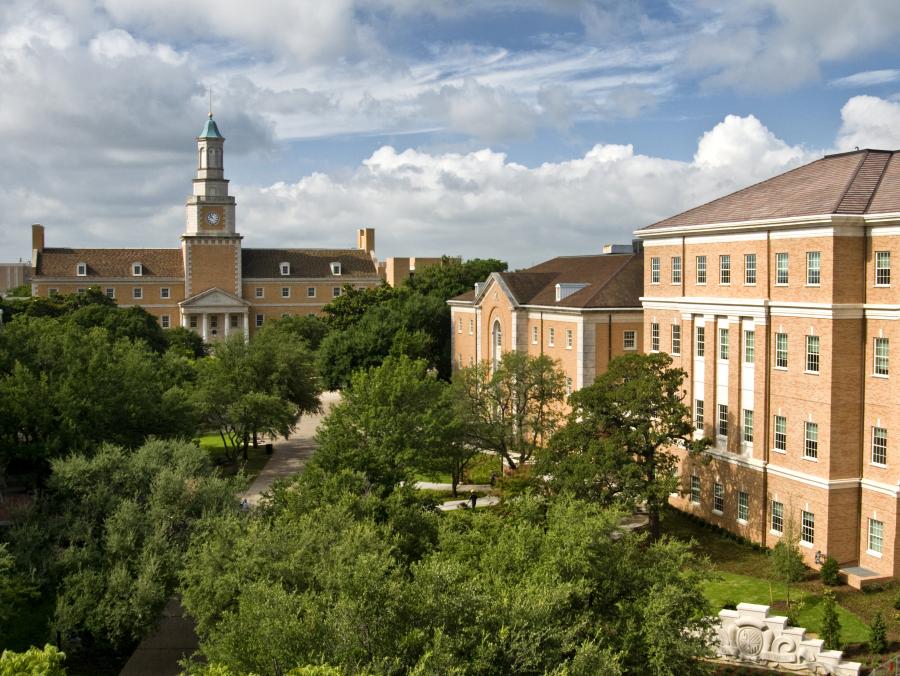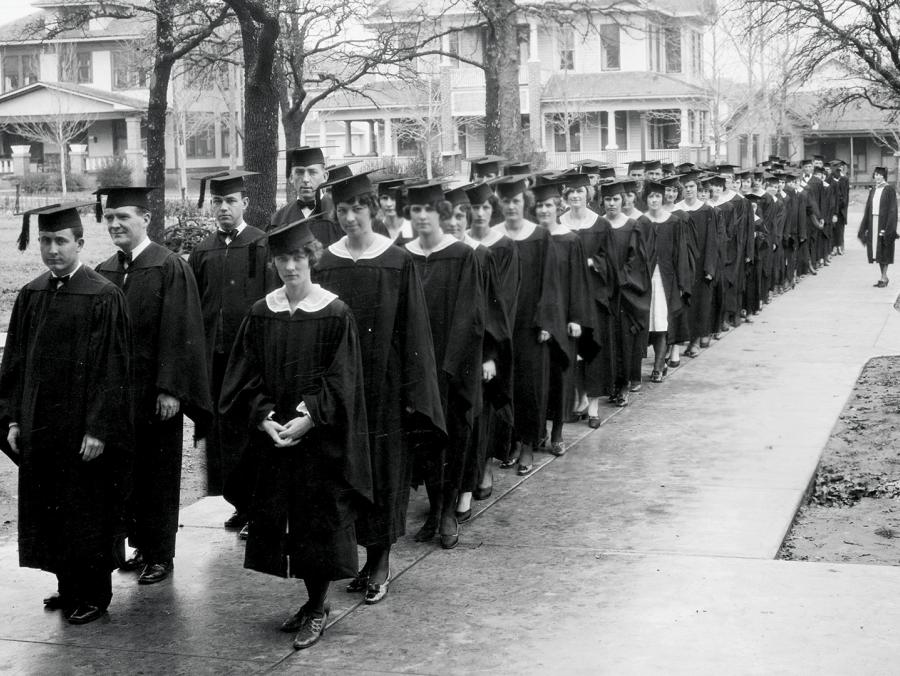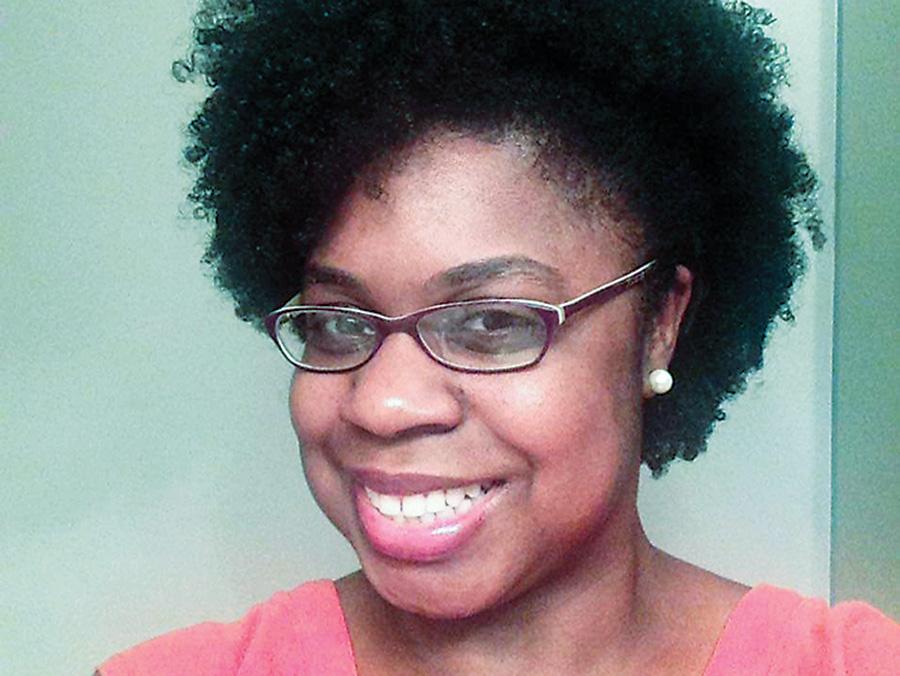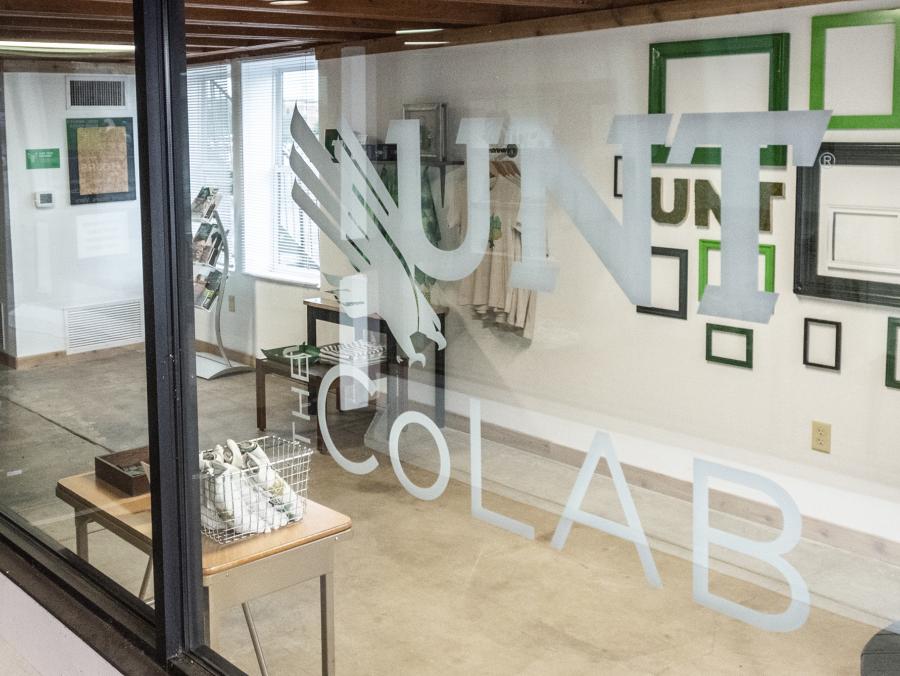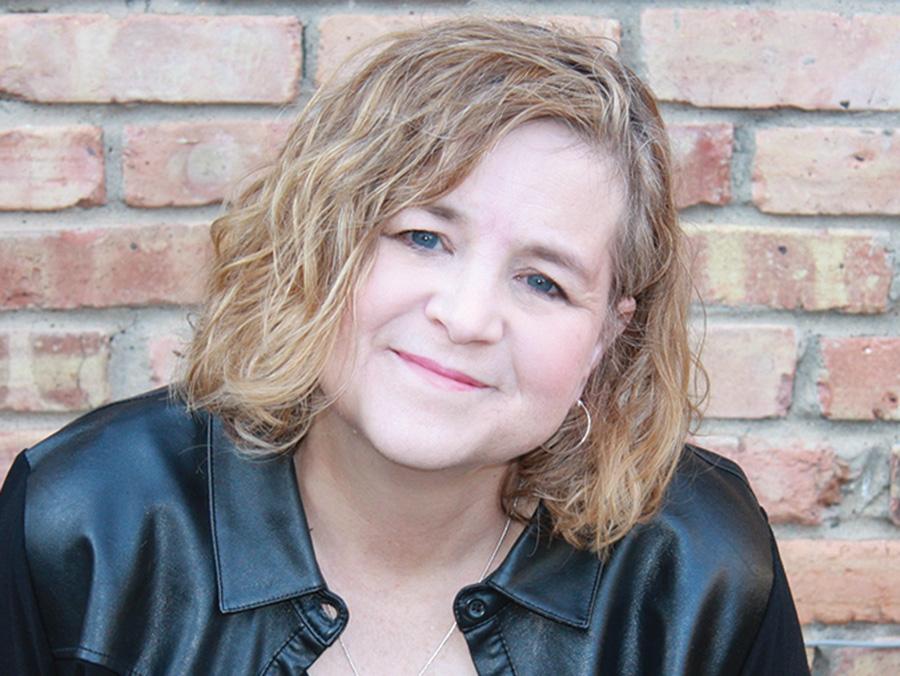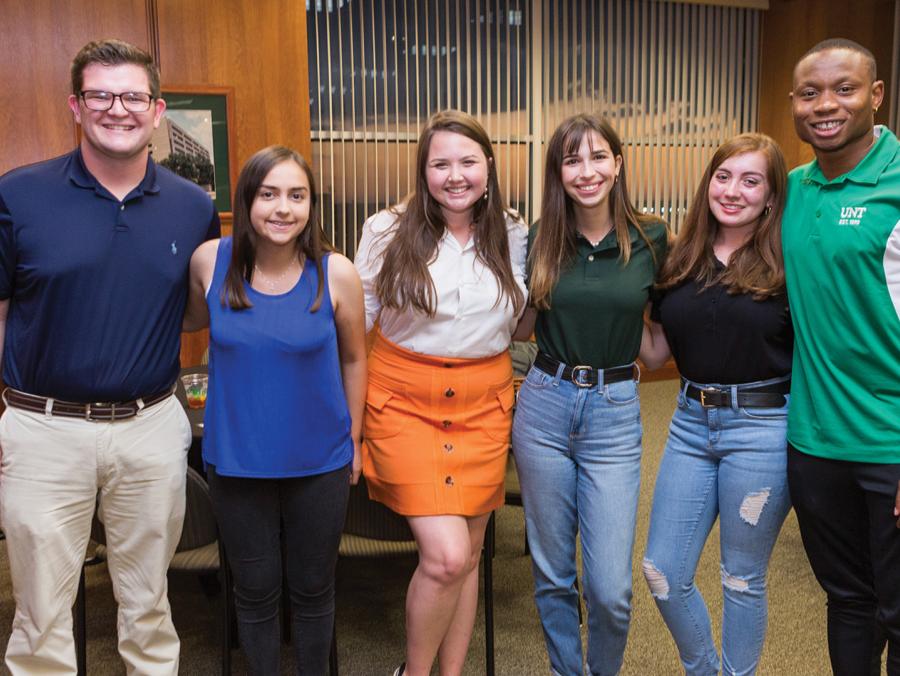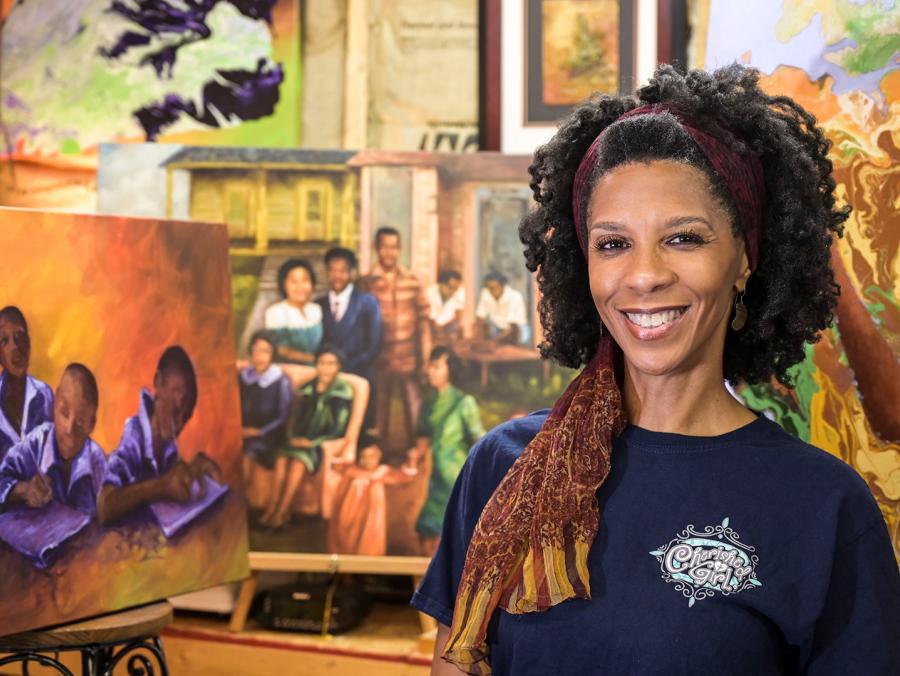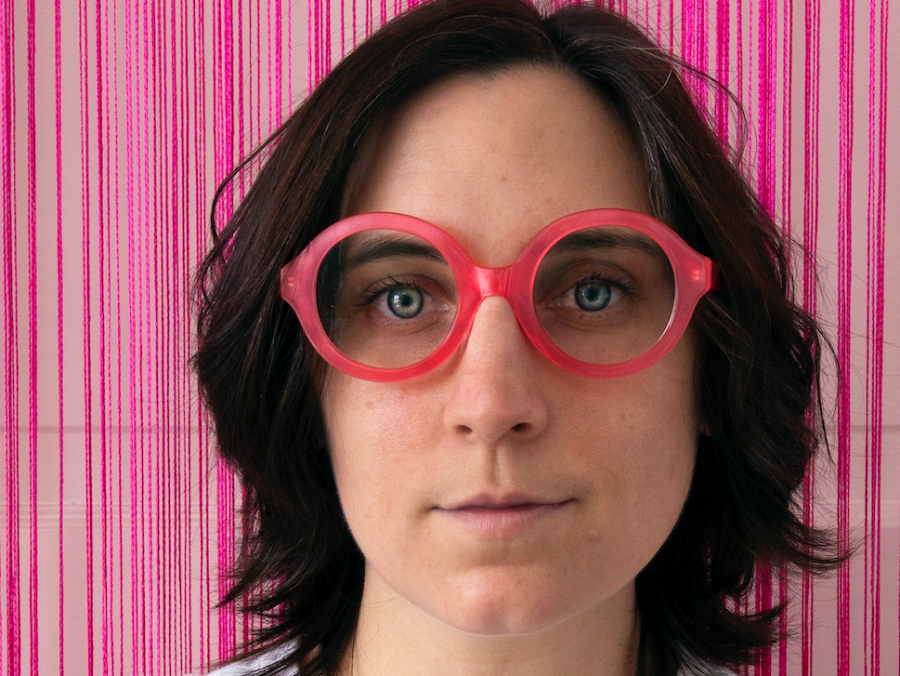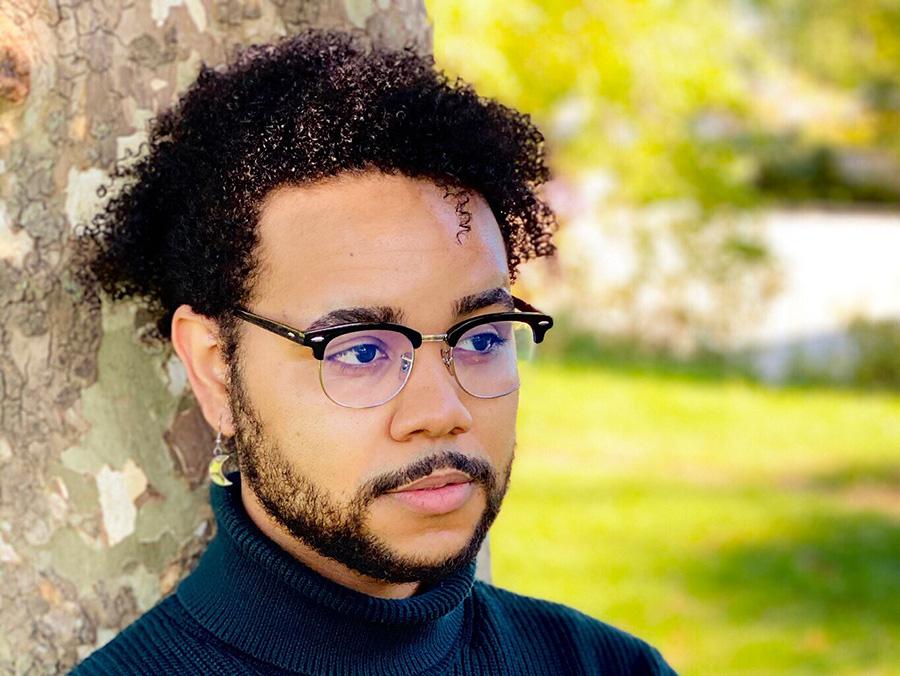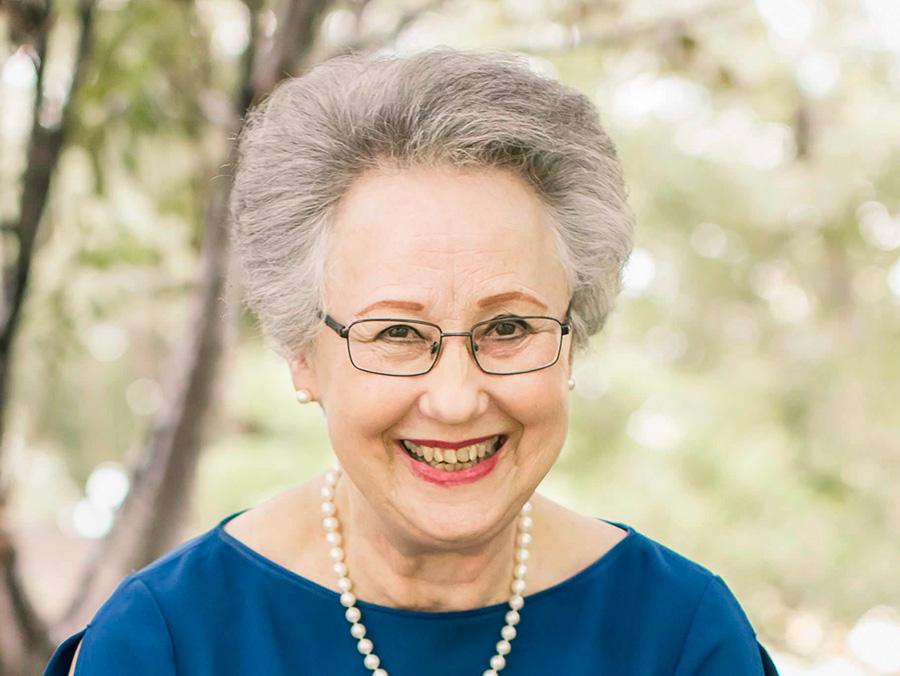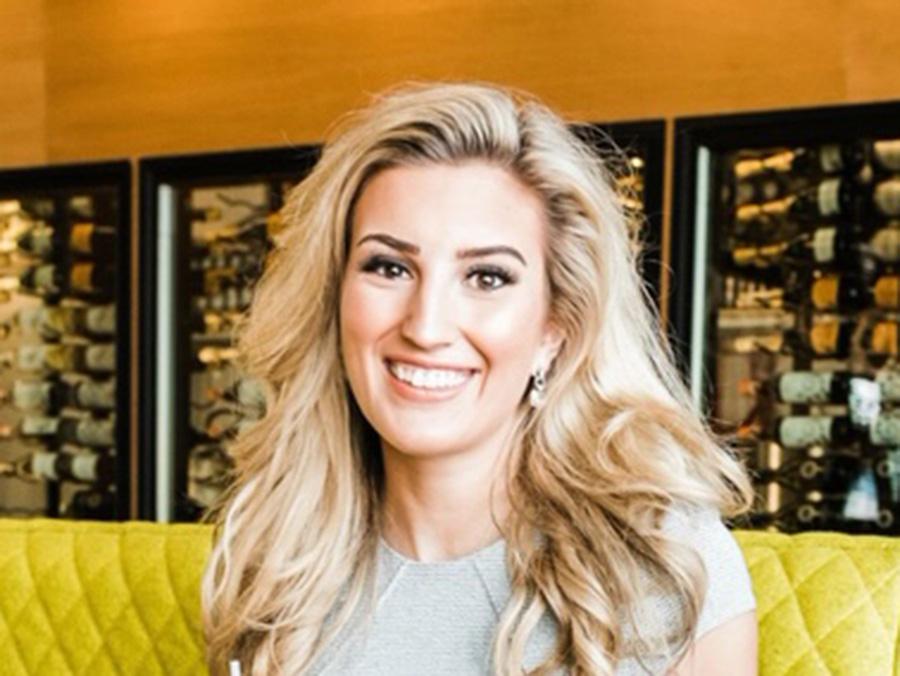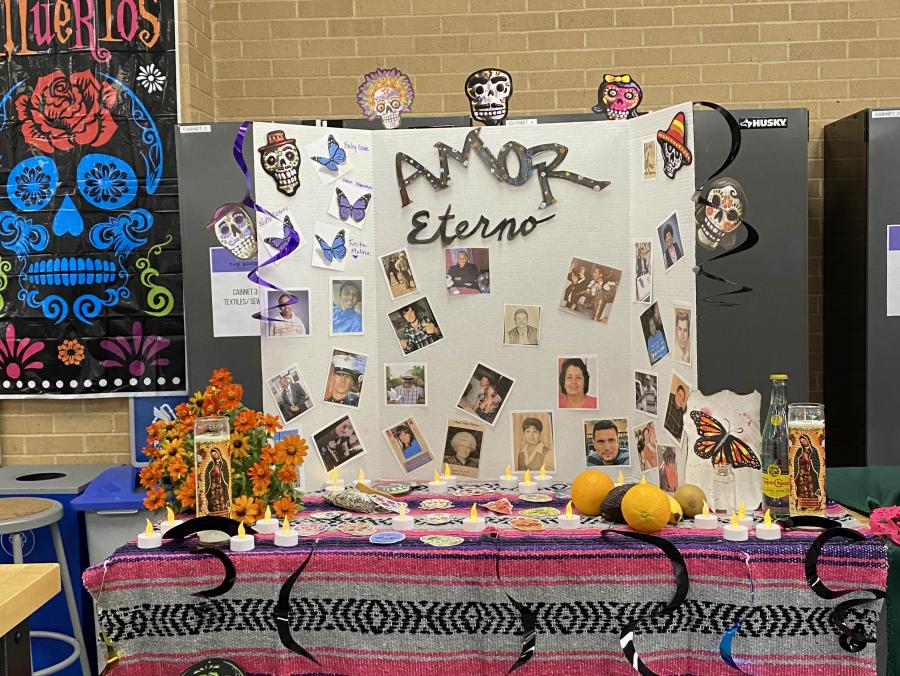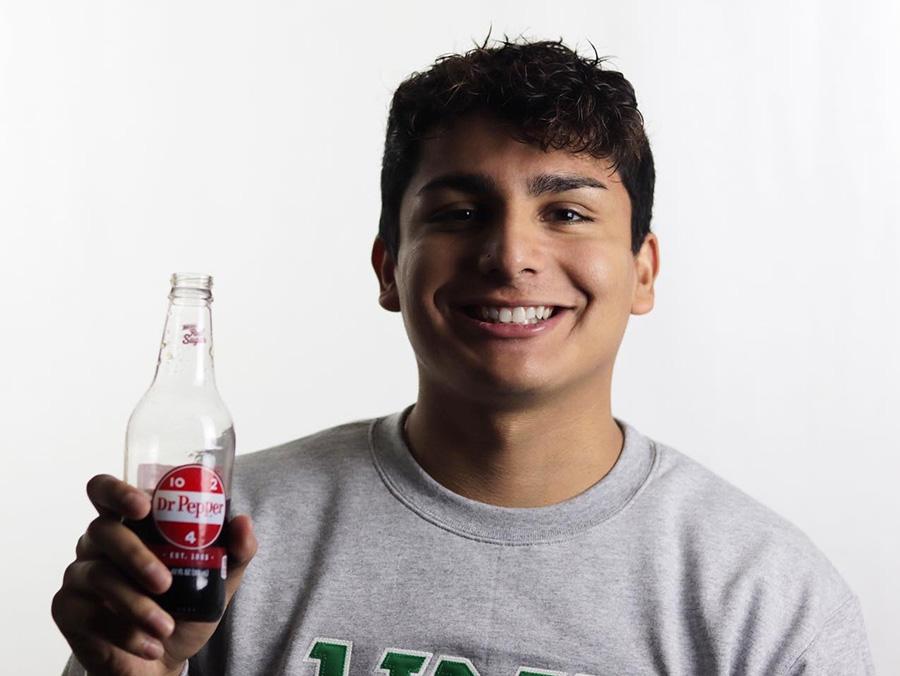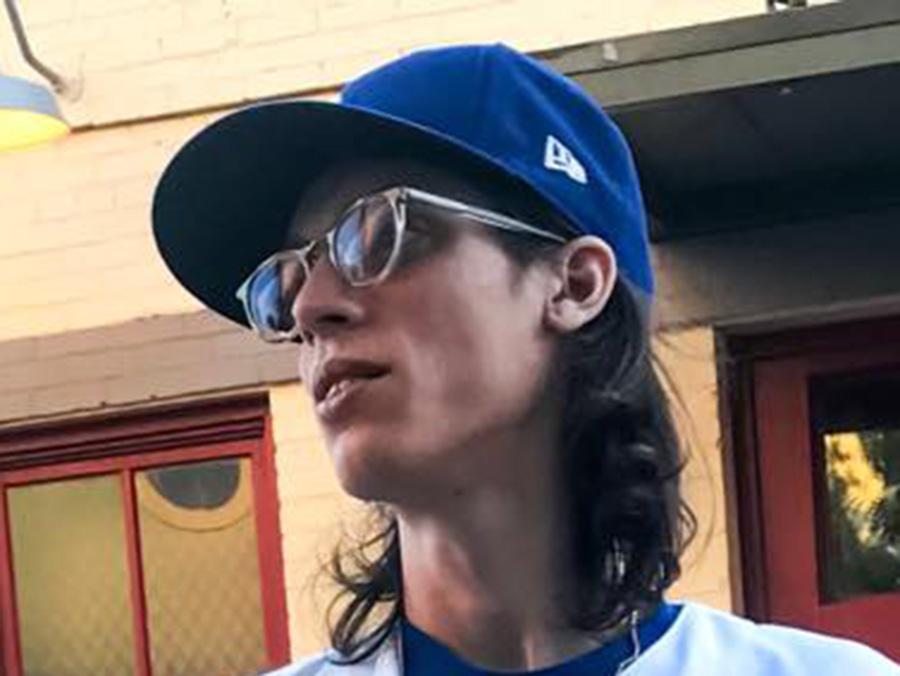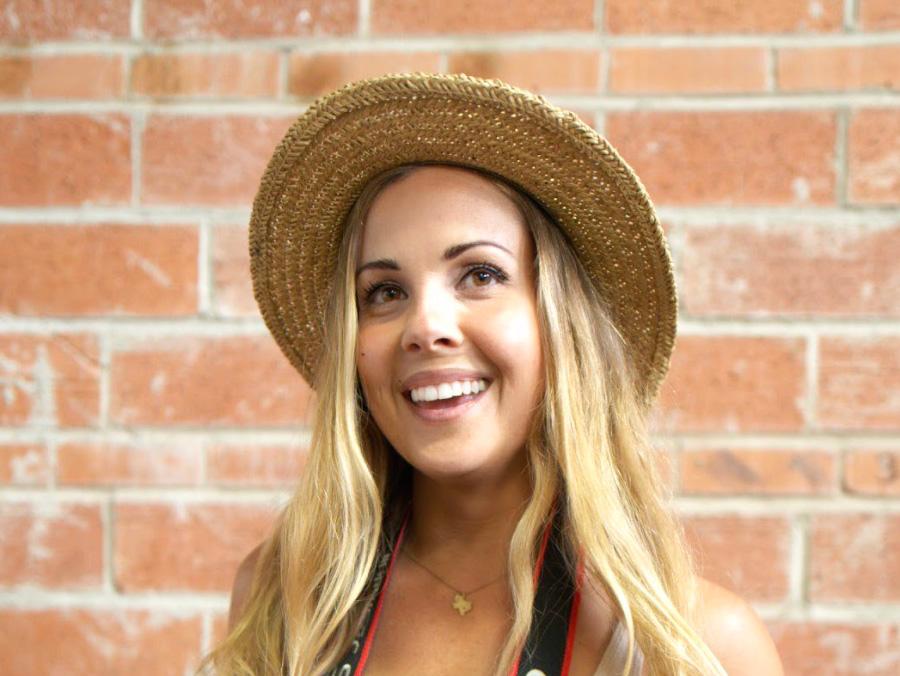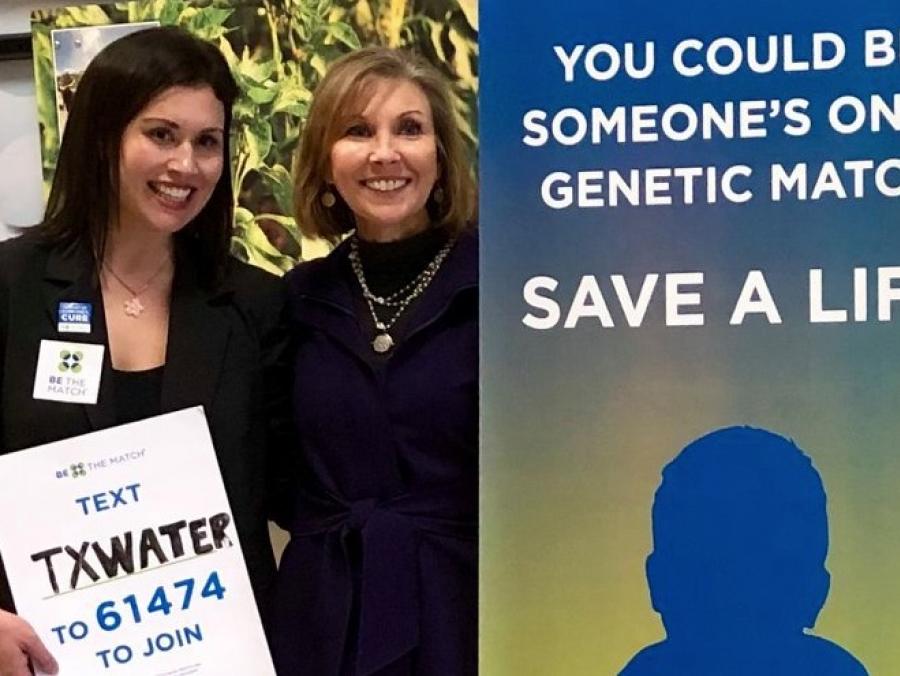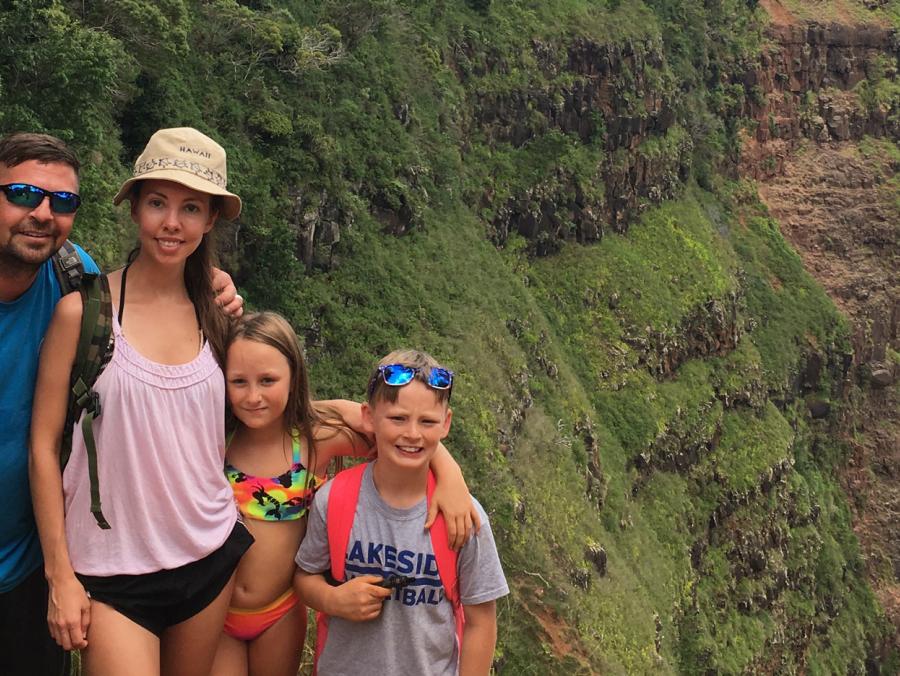or Lydia Evans (’07, ’15 M.S.), helping UNT’s neurodivergent students navigate life during and after college is like closing a loop in her own journey.
“Thinking back to when I returned to campus as a student after being sick, all I wanted to do -- even in the infancy of understanding my disability -- was live an ordinary life,” Evans says. “If I can give that to somebody else, or even be a small piece of that journey for them, that is awesome.”

As program coordinator for UNT ENGAGE, Evans helps neurodivergent students -- those with conditions such as autism, ADHD and dyslexia -- develop the skills they need to succeed in college and turn their degrees into careers. In addition to fulfilling her lifelong passion for human rights, the position also allows her to share lessons from her own journey of self-advocacy, which began when she lost both legs to bacterial meningitis during her sophomore year at UNT.
“I was really stubborn,” she says. “I didn’t have anybody to teach me about disability and my rights and how to speak up. I had to stumble through a lot of that myself.”
Many of the students she works with now also are stumbling when she first meets them, having overcome numerous obstacles to make it to a university only to discover unanticipated challenges.
“Sometimes students with autism think that their intellect is all they need to succeed,” Evans says. “But they learn pretty quickly that a lot of problems aren’t solved by IQ. They want more than anything that normal life that I wanted. A lot of my work is about empowering them and reframing the way they think about their disability.”
Although Evans didn’t have a roadmap for recovery, she did have people who guided and supported her along the way. One was her prosthetist assistant at the hospital, an amputee as well. She was living proof that the ordinary life Evans had always wanted was still within reach.
“She had a wedding ring on. She was talking to me about her own journey and she said, ‘Don’t worry. You’ll be up and walking again. I carried two babies, and I walked them out of the delivery room.’ I thought, ‘Oh my gosh. She’s beautiful, she’s employed -- and a wife and a mom. It can be done.’”
Also instrumental in her return to campus life were Evans’ sorority sisters in Pi Beta Phi.
“No one taught them how to support a sorority sister who, in the prime of her life, is going to be fighting for it,” she says. “I had a 3% chance of survival and here I come back to campus on my prostheses. They didn’t know what I’d need, but they did it anyway. They never let me say I couldn’t do something because I didn’t have feet.”
Even with support from family and friends, Evans admits that adjusting to her new normal was a struggle, especially since she refused much of the assistance offered by UNT’s Office of Disability Accommodations (now the Office of Disability Access).
“They’d offer me someone to come take notes for me in class since I lost the tips of my fingers. And I’d just think, ‘Well, no. If someone does it for me, how will I ever learn to do it myself?’ Because I refused official accommodations, I had to rely on asking for what I needed. As I was learning to type again, a 10-page paper was daunting. My professors always were willing, but I had to ask for it,” she says.
Evans often discloses her own journey to students to show them that they don’t have to lower their expectations.
“I don’t have autism, but I want to show my students who do that they can pursue their dreams,” she says. “Much of their life has been focused on what they can’t do. My goal is to give them an opportunity to learn their strengths, to see that they can determine what their life will look like.”
Although less than a year old, UNT ENGAGE is already gaining support from all over campus. It’s an incredible feeling for Evans, who worked for years in transition services for the State of Texas and Lake Worth ISD after completing her master’s in rehabilitation counseling at UNT.
“In the school districts, you’re often the lone voice championing the importance of transition services for students with disabilities,” she says. “It can be very daunting. With ENGAGE, we’re already taking it so much further than we’d hoped. We work with the Speech and Hearing folks who do social skills classes and the Counseling and Testing Center for individual counseling. They’re even working to start a dating with autism group.”
No longer the lone voice, Evans is inspired by UNT’s commitment to being a change-leader in the inclusion and support of neurodivergent students.
“We are the first university in the metroplex to have this kind of programming,” she says. “I’m proud to represent UNT when I go out to transition fairs, talking to parents about all the things we’re doing here and knowing that we’re just getting started.”




